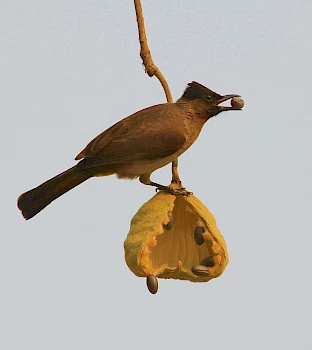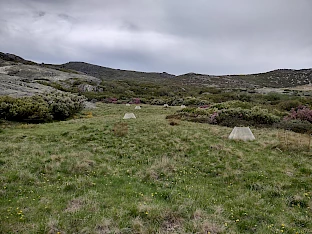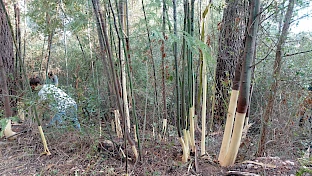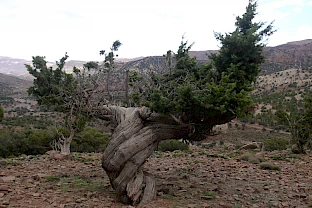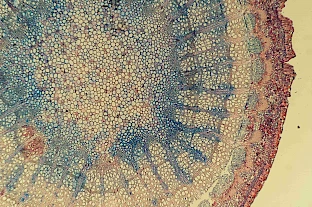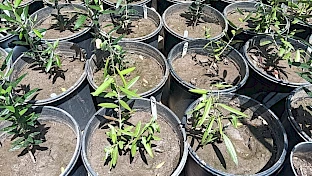PIs
Cristina Nabais
Susana Rodríguez-Echeverría
The Terrestrial Ecosystems and Global Change research group is focused on the diversity and functioning of terrestrial ecosystems and their responses to drivers of Global Change. The group has five research lines, organized in research labs:
MOUNTAIN ECOLOGY Lab. (Mountain.Lab) PI: Susana Rodríguez-Echeverría. The Mountain.Lab studies the effects of climate change on the diversity and dynamics of high-altitude ecosystems and on the diversity, resilience and recovery of mountain forests affected by global change drivers such as wildfires. Within this research line, we are particularly interested on the relevance of below-aboveground interactions for plant fitness and ecosystem dynamics.
INVASORAS.PT Lab. PI: Elizabete Marchante, with co-PI Hélia Marchante, from Escola Superior Agrária, Instituto Politécnico de Coimbra. The INVASORAS.PT Lab aims to understand the processes of invasion and impacts of invasive alien plants across various biological levels, including interactions with biotic and abiotic factors. This research line has a strong applied component focused on the management and control of invasive alien plants, and a robust investment in public awareness and outreach, including citizen science.
DENDROCHRONOLOGY Lab (MedDendro.Lab). PI: Cristina Nabais. The MedDendro.Lab aims to understand the response of Mediterranean tree species to global change at the physiological and wood anatomical levels. Besides studying living trees, it also uses historical and archaeological wood as a source of ecological and climatic information of the past.
COMMUNITY ECOLOGY Lab. (Community.Lab). PI: Ruben Heleno. The Community.Lab uses species-interactions networks, often in the context of island biogeography, to explore the interplay between community composition, structure, function and resilience, with an emphasis on seed dispersal.
STRESS PHYSIOLOGY Lab (Stress.Lab). PI: Maria Celeste Dias. The Stress.Lab studies plant physiological and biochemical mechanisms underlying abiotic and biotic stresses, as well as the search for integrated strategies to reduce the application of agrochemicals and alleviate negative effects of stresses on crops.



